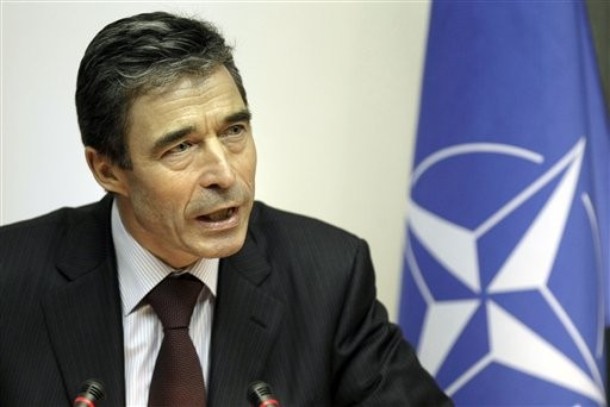
From Anders Fogh Rasmussen, NATO: Economic prosperity also requires wise security choices. …
By sharing the burden within NATO, individual Allies can achieve a far greater level of security than they could achieve through any national approach — and at far lower cost. But this collective insurance policy requires the regular premiums to be paid. NATO membership does not come for free. There are responsibilities and obligations that each Ally needs to meet – including financial obligations.
All Allies, on both sides of the Atlantic, need to demonstrate the political will to continue to invest in defence – and to invest their fair share in NATO. …
European Allies, in particular, must resist the temptation to use the economic crisis as an excuse for letting the transatlantic defence spending gap widen any further.
Already today the United States spends three times more on defence per soldier than Europe: more than three hundred thousand Euros as opposed to only one hundred thousand per soldier in Europe. And the US spends five times more on equipment and Research and Development per soldier than Europe; one hundred and twelve thousand Euros as opposed to only twenty-three thousand Euros. These figures indicate a huge technology and capability gap across the Atlantic. …
We must work hard to close these gaps. Because if we don’t, our ability to operate together will be affected. And that could well have serious consequences for our political cohesion.
We must be careful not to allow the capability gap to grow into a credibility gap. That means we must resist unilateral actions. It means that we must ensure cohesion across the Alliance in our defence decisions. And it means that we must resist the temptation to cut back on long-term investments in high-technology capabilities. …
Of course, some of these decisions will not be easy. And they will require political courage.
But that, too, is part and parcel of burden sharing.
Excerpts from ”Security policy in an era of budgetary constraint” speech by NATO Secretary General Anders Fogh Rasmussen, Brussels 21 June 2010. (photo: AP)
Image: ap%206%2021%2010%20%20Anders%20Fogh%20Rasmussen%20Moscow.jpg
